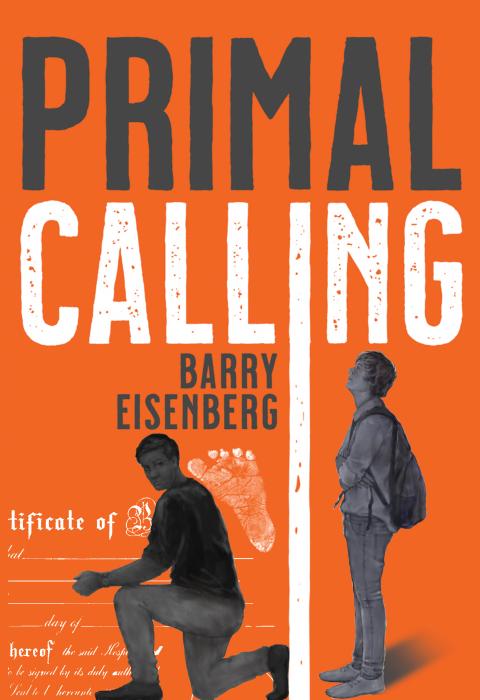She's Not a Number. She Counts.
It wasn’t until she said the word sister that she got my full attention. But it was more than just the word; it was what her sister was going through. The encounter occurred just a few years ago.
A woman was seated on a small couch next to the chair I was heading toward. She sat quietly, staring straight ahead, blankly it seemed. She glanced up with an expectant look as I neared and gave me a small smile of acknowledgement as she realized I was not the person she was waiting for. I returned the smile. Then she turned away, her face resuming its vacant stare.
I had just wrapped up a long day of meetings at a hospital in the Midwest and sat down briefly to put a few papers in my briefcase. The lobby was empty, except for a few remaining visitors making their way toward the revolving door. It was late, a little past 8 pm, and visiting hours had just ended.
As I assembled the final few folders, the woman looked in my direction and asked, “Visiting someone?”
I barely looked up. I was preoccupied with thoughts about the lengthy meetings concerning the hospital’s expansion plans. I was replaying some of the conversations, wanting to be sure I had given my best advice about a funding strategy.
“No,” I responded. “I wasn’t visiting a patient. I’m doing some work with the hospital. It’s been a long day of meetings.”
A second later, in what was not much more than a throwaway line, I asked, “And you?” My gaze was still fixed on the last few folders as I slid them, one at a time, into my briefcase.
She didn’t answer for a second. Her silence registered. I looked up, realizing I hadn’t really noticed her until now. She had a pleasant face, soft features, and a naturally warm expression. I would have guessed she was in her mid-70s. Her hands were folded in her lap. Her eyes were a bit puffy and red – she had clearly been crying and was now fighting off tears.
“Oh, I’m so sorry to be bothering you,” she said. “You look busy.”
“No, not at all,” I responded quickly, uncomfortable for having given her that impression, which of course I did. “Well, actually, it has been a full day of meetings here. But tell me, what keeps you here past visiting hours.”
“I’m waiting to see one of the social workers. It’s about my sister. She’s been here for a few days.”
Sister. At the time it had been about nine years since my own sister passed away. And then, as now, it takes very little for my thoughts to veer in her direction.
“Oh, I am so sorry. I hope it’s not something serious,” I said, an expression that sounded empty as the words were coming out of my mouth. I always marvel at people who can respond so comfortably and helpfully in situations like this, conveying sensitivity without prying, consoling without intruding. It’s a skill I’d love to have more of.
“Oh, how I wish,” she replied. Her hands remained folded but her fingers began to fidget. “She’s been here for three days, and today they told her she has about four months. Pancreatic cancer.” Her gaze shifted from me to the expanse of the sprawling hospital lobby, as though searching for something she knew would not materialize.
I wanted to take her hand and express how sorry I was. To let her know that I know what it’s like to hear such news about a sister, and in my case, about a brother as well. Though she and I were strangers, we were also kindred souls, joined by the heartbreak of loss, although of course she didn’t know that.
It’s an impulse in such situations to share our own experiences of losing someone very close, in part because our memories are triggered so easily, so acutely. Sometimes it’s a way of filling the void when the “right words” are hard to come by. Or it may be a way of indirectly showing that we really do care because we can relate to what they are going through. But it can also deprive the other person of owning their anguish that its immediacy entitles them to.
“I truly am so sorry to hear this,” I offered.
The top page of the last folder in my lap caught my eye. It was labeled, “Discharges.” I knew what was in there. A bar graph occupied the bulk of that page, with the number of patients admitted to and discharged from the hospital each month. This was a main subject of our meeting. The total for the year appeared in bold on the bottom of the page: 27,873. This woman’s sister would soon be a number on a report like this. The thought shook me.
I looked back at her. I needed to see her sister as a distinct person, to pluck her from that cold aggregate. “What’s your sister’s name?” I asked.
An ever so slight smile came to her face. This smile had a brightness to it, in contrast to that earlier perfunctory smile of acknowledgment.
“Patricia,” she said, her grin widening just a bit. “But we never called her that. She was always Trish. Except of course when she got into trouble as a kid.” All of a sudden, this woman became somewhat animated as she continued, “Like when we were at a farm one summer. Our mother spent hours preparing turnips that we grew, and Trish brought them out for a rabbit who visited the back porch every afternoon. Mom half-scolded, ‘Patricia, did you give the turnips to that rabbit?’ and immediately Trish fessed up and said, ‘I couldn’t help it. He looked so hungry.’ Up in her room today, I reminded her of that story.”
“So, she was a little troublemaker,” I teased. “But, you know, it sounds like Trish has a big heart. And what’s your name? My name’s Barry.”
“Nice to meet you. I’m Lynette. And yes, she did have a big heart.”
Did have a big heart? Did? Was this Lynette’s way of preparing for the inevitability of Trish’s passing, I wondered. Lynette was on the cusp of entering an emotionally grueling period during which she’ll ping pong between memories that will become more precious than ever and the raw torture of watching Trish’s decline.
Lynette’s grief will be ever-present and painful, at least for a period. We typically come to see grief as an enemy, a negative force that draws us into callous clutches. We often feel compelled to fight grief, compartmentalize it, wish it away, neutralize it. We’re counseled by well-meaning friends and family to find ways to overcome it. All this is very understandable. After all, grief can surely feel unbearable, especially in its early stages.
But grief is also a reflection of how much we cared for someone. Lynette’s little story about Trish was not only very sweet, it was also very revealing. It showed that she adored her sister and it illustrated how much she must have meant to her for the entirety of their lives. I hope that that memory, and the countless others Lynette has about Trish, will ease the pain over time, counterbalancing it with the joy that she felt about having Trish for her sister. And I hope that Lynette is surrounded by people who give her the space to reminisce in comforting ways.
Just then, a young woman wearing a hospital ID badge approached Lynette. She put her hand on her shoulder and said, “Hi, Mrs. Sullivan. So sorry for keeping you waiting. We can meet now.”
Lynette introduced me to the young woman, Nicole, a social worker. Lynette said, “Nicole helps families like ours. She’s going to help me find a support group and maybe a therapist. Isn’t it great that they do this for us?”
Much of what I do for a living involves using words. But in these circumstances, words can seem meaningless, manufactured, falling short of the task of capturing the sentiment that is so visceral. To have said that I understood what she was going through would have co-opted the emotionalism Lynette deserved right then. And the truth is, I didn’t understand. Everyone’s grief is different and personal. I wished her and her family comfort in the coming days.
Lynette and I shook hands. Her hand was warm and comforting, After saying our good-byes, I watched as Lynette and Nicole walked down a long corridor, Nicole’s arm around Lynette’s shoulder.
After a minute or two, I looked back down at the pile of papers. The graph depicting discharge volume looked awfully sterile, chillingly so. That number glared up at me -- 27,873. Every single one of those 27,873 “discharges” was a real person, someone with a name and a history. Each experienced a life event that brought them to this hospital. There were certainly some whose life stories, just like Trish’s, were entering their final chapter.
I have worked in healthcare for decades and have passed through hospital lobbies thousands of times. And right now, all I could think about was how many Lynettes I passed by, not seeing them because my attention was riveted to the “big picture” – as though anything could be bigger than what Lynette, Trish, and their family were going through.
How many others did I pass, people who felt anxious about the possibility of hearing scary news, not sure what questions to ask. Or having exhilarating moments following the birth of a child? Or anxiety over the expense of all this care? Or a fear that their life will never be the same.
One day years ago, I was in an elevator in the hospital where I worked, and when the elevator stopped at the ground floor, a young couple exited just ahead of me. Thinking no one was in earshot, the woman leaned toward her companion and whispered, “We’ll get through this together.” That stuck with me. Of course, I didn’t know what it was all about, but I did know that those five words would now be a central part of their lives, woven into expectations for what the future will bring.
There was the image of that young couple and Lynette and Trish juxtaposed against the discharge chart. Each of those 27,873 people have individuals in their lives who are deeply affected by what happens to their loved one in this building. For Lynette, the heartache was brand new, almost too fresh to have settled in. If it was any fresher, the event triggering the pain would not yet have occurred. Thank goodness for Nicole, and all the incredibly wonderful healthcare workers who devote themselves selflessly and tirelessly to those in need. And thank goodness that this hospital is committed to serving its patients – and their loved ones – with genuine care and concern.
The hospital’s plan for expansion, the reason I was there that day, would enable them to serve many more people. The discharge graph would be dehumanizing only if all they cared about were the numbers. But Nicole’s hand on Lynette’s shoulder told a different story, or maybe the same story but through a different and complementary lens. Healthcare is a gigantic industry, but it is also millions of human encounters each day, real people helping other people, seeing them as individuals and not just dots or bars on a graph.
I’ve come to learn that it takes a special kind of hospital leadership to bring about a culture in which concern for its prospects as an institution is matched by its concerns for each person who comes for care. If that was easy, each patient who visits a hospital would be fully satisfied and each hospital would be financially secure. We know that is not the case. Sadly, far from it. But when hospital leadership is humble enough to recognize that the most important people in the building are the patients, and not themselves, they are on the path toward achieving that.
As Nicole and Lynette walked away, Nicole stopped and turned to me. She said, “Lynette and her sister are in good hands here.” It was as though she had read my mind, and at that moment no other words could be more heartening.

